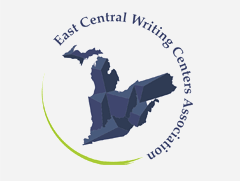Presentation/Proposal Title
The Writing Center Handbook and the Discourse of Writing Centers: Four Critical Discourse Analyses
Type of Presentation/Proposal
Panel Discussion
Start Date
5-4-2019 9:45 AM
End Date
5-4-2019 10:45 AM
Keywords
Writing Center Handbook, writing center discourse, critical discourse analysis
Description
As noted by Jewell and Cheatle (2016), framing a professional consultant’s handbook can prove difficult, particularly regarding how such handbooks frame their peer-to-peer and non peer-to-peer consultation scenarios. As well, and for many writing center (WC) administrators, such a task of creating, framing, and/or revising a central guide or handbook can be challenging. More specifically, for WCs who are in the initial stages of drafting such handbooks, particularly with incoming and new writing center administrators, this process can prove difficult. Adding to this difficult task is the fact that there is little scholarship that offers guidance and informative ways to frame and outline WC handbooks. With this difficult task in mind, this panel presentation/discussion offers four individual critical discourse analyses (CDAs) of ten WC handbooks from across the country. More specifically, this CDA, as informed by the work of Fairclough (1989, 1993), Wodak (2001), and van Diijk (1993), examines such handbooks’ “guidelines for tutoring/applied practices,” where the following research questions will be addressed by the following presenters:
Paige Brady: Offers a CDA that examines how WC handbooks outline the applied practice of writing center appointments, where such a CDA offers insight into the language used to instruct the interchanges between the writing consultant/tutor and the student/client.
Kristen Kelly: Offers a CDA that examines how WC handbooks use language to outline what WCs “do” and “don’t do”—where such a CDA looks closely at the disposition and affect of negatives throughout such sections.
Sam Kodeski: Offers a CDA that examines how WC handbooks use such terms as “appointments” versus “sessions” versus “meetings”; such a CDA responds to the overarching affect such terms create between the consultant/tutor and the student/client.
Jason Mickevich: Offers a CDA that questions how the agency of the consultant/tutor and writer/student is framed, where such a CDA investigates how such language shapes, frames, and/or defines the interdisciplinary discourse community of the WC.
David Marquard: Serves as faculty mentor and panel presentation/discussion moderator.
The results of this study offer insight into the interdisciplinary discourse (as defined by Hyland, 2004) of the writing center, particularly regarding how writing centers potentially serve as facets of academic reproduction regarding linguistic and cultural capital (as informed by Bourdieu, 1984). And due to the nature of this study, coupled with the fact that there’s little research that examines how WCs write/frame the language within their consultant handbooks, this panel presentation/discussion is of value for writing center administrators who wish to create such handbooks or to further revise existing handbooks.
The Writing Center Handbook and the Discourse of Writing Centers: Four Critical Discourse Analyses
M2320
As noted by Jewell and Cheatle (2016), framing a professional consultant’s handbook can prove difficult, particularly regarding how such handbooks frame their peer-to-peer and non peer-to-peer consultation scenarios. As well, and for many writing center (WC) administrators, such a task of creating, framing, and/or revising a central guide or handbook can be challenging. More specifically, for WCs who are in the initial stages of drafting such handbooks, particularly with incoming and new writing center administrators, this process can prove difficult. Adding to this difficult task is the fact that there is little scholarship that offers guidance and informative ways to frame and outline WC handbooks. With this difficult task in mind, this panel presentation/discussion offers four individual critical discourse analyses (CDAs) of ten WC handbooks from across the country. More specifically, this CDA, as informed by the work of Fairclough (1989, 1993), Wodak (2001), and van Diijk (1993), examines such handbooks’ “guidelines for tutoring/applied practices,” where the following research questions will be addressed by the following presenters:
Paige Brady: Offers a CDA that examines how WC handbooks outline the applied practice of writing center appointments, where such a CDA offers insight into the language used to instruct the interchanges between the writing consultant/tutor and the student/client.
Kristen Kelly: Offers a CDA that examines how WC handbooks use language to outline what WCs “do” and “don’t do”—where such a CDA looks closely at the disposition and affect of negatives throughout such sections.
Sam Kodeski: Offers a CDA that examines how WC handbooks use such terms as “appointments” versus “sessions” versus “meetings”; such a CDA responds to the overarching affect such terms create between the consultant/tutor and the student/client.
Jason Mickevich: Offers a CDA that questions how the agency of the consultant/tutor and writer/student is framed, where such a CDA investigates how such language shapes, frames, and/or defines the interdisciplinary discourse community of the WC.
David Marquard: Serves as faculty mentor and panel presentation/discussion moderator.
The results of this study offer insight into the interdisciplinary discourse (as defined by Hyland, 2004) of the writing center, particularly regarding how writing centers potentially serve as facets of academic reproduction regarding linguistic and cultural capital (as informed by Bourdieu, 1984). And due to the nature of this study, coupled with the fact that there’s little research that examines how WCs write/frame the language within their consultant handbooks, this panel presentation/discussion is of value for writing center administrators who wish to create such handbooks or to further revise existing handbooks.



Comments
Where there are five listed names in the proposal, there will only be four key speaking roles. David Marquard serves as faculty mentor and panel presentation/discussion moderator.